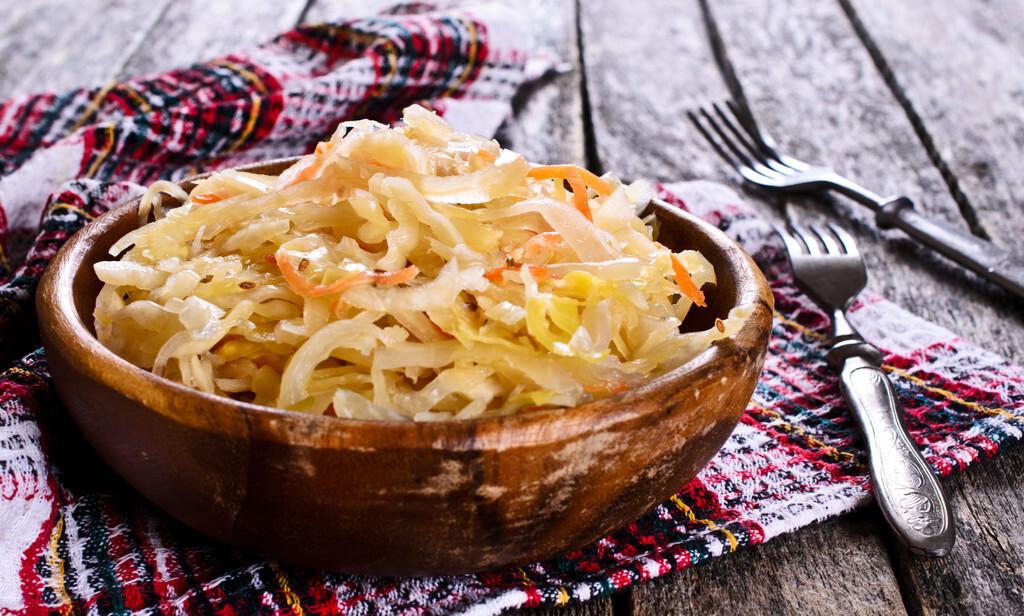
Sauerkraut salad Salad of sauerkraut
In meat processing, storage is a big problem because meat is so easily spoiled. From ancient times to the present, from China to foreign countries, people will use some means of curing to preserve meat. In the modern food industry, it is very common to add preservatives to meat, the most commonly used is sodium nitrite. On the one hand, it can inhibit the growth of bacteria, thereby prolonging the preservation time of meat; On the other hand, it binds to the myoglobin in the meat, which gives it a seductive red color in cooked meat. But sodium nitrite itself is a harmful ingredient that may be converted into nitrosamines in the human body – the latter being a carcinogen, so sodium nitrite is usually also considered a possible carcinogen. Fortunately, scientists have done a lot of experiments to find out the amount of negligible harm to human health. The maximum amount of use in the national standard is much lower than the content of harmful doses, which is also the premise that it is allowed to be used.
However, people always tend to pursue "zero risk", and these preservatives are always avoided, and the pursuit of "all-natural" is also natural. However, "natural products" are not a guarantee of "safety". For example, the celery powder in this example naturally contains a large amount of nitrate, which is naturally present in many green plants, and under the action of "active bacteria", some of these nitrates will be converted into nitrites, and the effect of additional preservatives is realized. Legally speaking, its raw materials are indeed "all natural" and are not processed "illegally".
All over China have the habit of making cured meat and sauerkraut. Usually people use sea salt to marinate the corresponding raw materials, so as to achieve long-term preservation of food. These things, produced with "traditional" craftsmanship, are considered "all-natural" foods by most people. In these foods, a fairly high salt concentration itself inhibits the growth of bacteria to some extent, thus preventing the food from deteriorating. On the other hand, there is a certain amount of nitrate or nitrite in sea salt, and the nitrite that originally exists in these salts or is converted from nitrate also plays the role of preservative.
Sauerkraut is also a traditional "all-natural" food, which is more likely to contain large amounts of nitrite. Chinese national standards stipulate that the sodium nitrite content in meat products should not exceed 30 mg per kilogram, and in the process of marinating sauerkraut, the nitrite content in sauerkraut is a process from low to high and then reduced. At its highest point, it may reach more than 100 mg per kilogram, and if you eat "natural foods" that are pickled to this extent, you are very susceptible to poisoning; In the end, it is completely marinated, and there will be a content of a few milligrams per kilogram, but such a content is no longer harmful.
We all want to eat "absolutely safe" and think that "natural food" can give us such a guarantee. Unfortunately, this is just an illusion, an illusion that our ancestors ate for many, many years, so there was "no problem". The harm of many things is mild and chronic, and in ancient times, there was neither clinical research nor statistical comparison, and it was impossible for people to find the harm in it. The great Shennong clan tasted hundreds of herbs, and could only taste things that made people acutely poisoned. Ancestors who ate "natural food" for thousands of years, but only ate undead people, or did not eat serious diseases, is not as "absolutely safe" as we think. Modern science tells us what kind of harm modern industrial food has, and we can weigh such harm against the benefits it brings. And "traditional" and "natural" foods, without the same testing, are actually "not knowing whether there is harm", rather than "no harm".
Whether it's "natural" or "artificial" food, the key lies in what it contains, not where it comes from. Synthetic plus preservatives can be harmful to the human body, and "natural" contains the same. "Zero risk" does not exist, we can only reduce the potential risk as much as possible. For society, the key is what kind of management to carry out, and to tell everyone accurate scientific information. For example, the requirements of the U.S. authorities for cooked meat products with celery powder mentioned above are: You can say "sodium nitrite is not added", but you must also state that "contains naturally occurring sodium nitrite" - after the accurate information is conveyed to the public, if people are still willing to spend more money to buy this "natural food", it is the consumer's own choice. It is also a level playing field for manufacturers who use sodium nitrite.